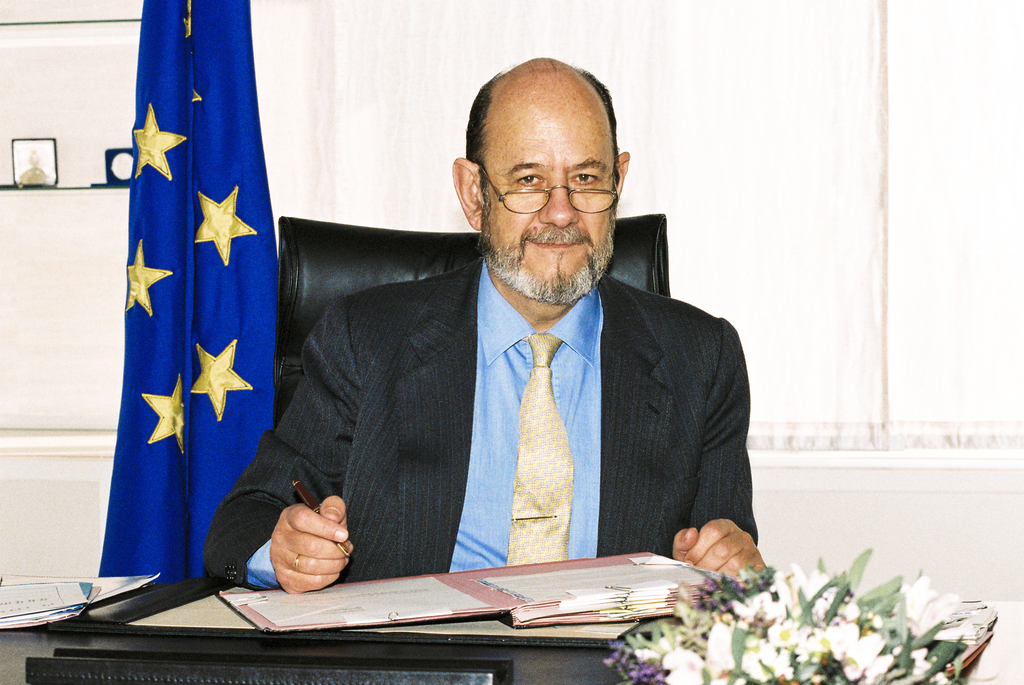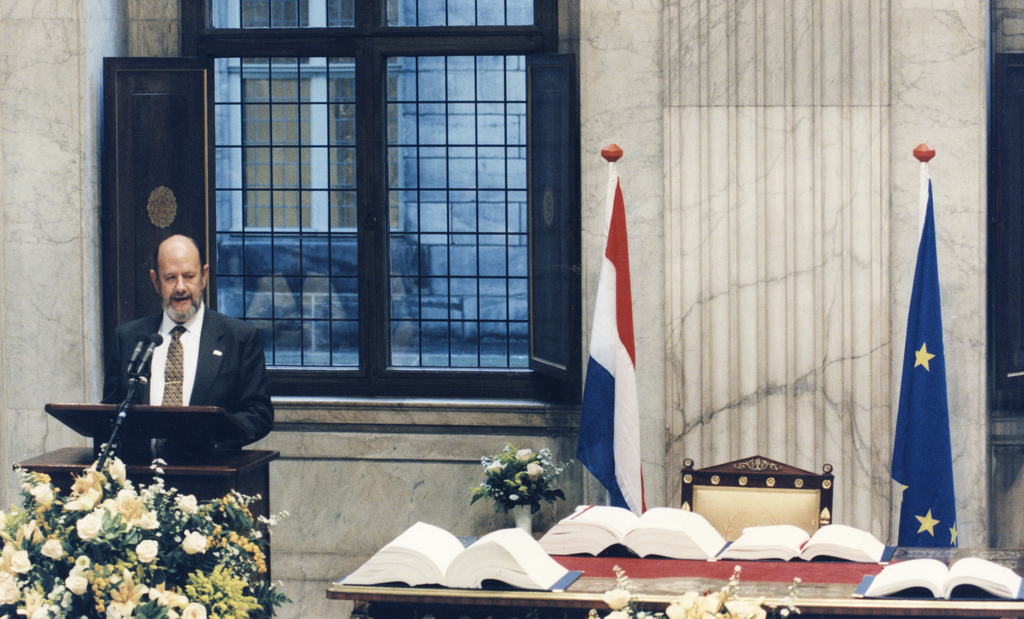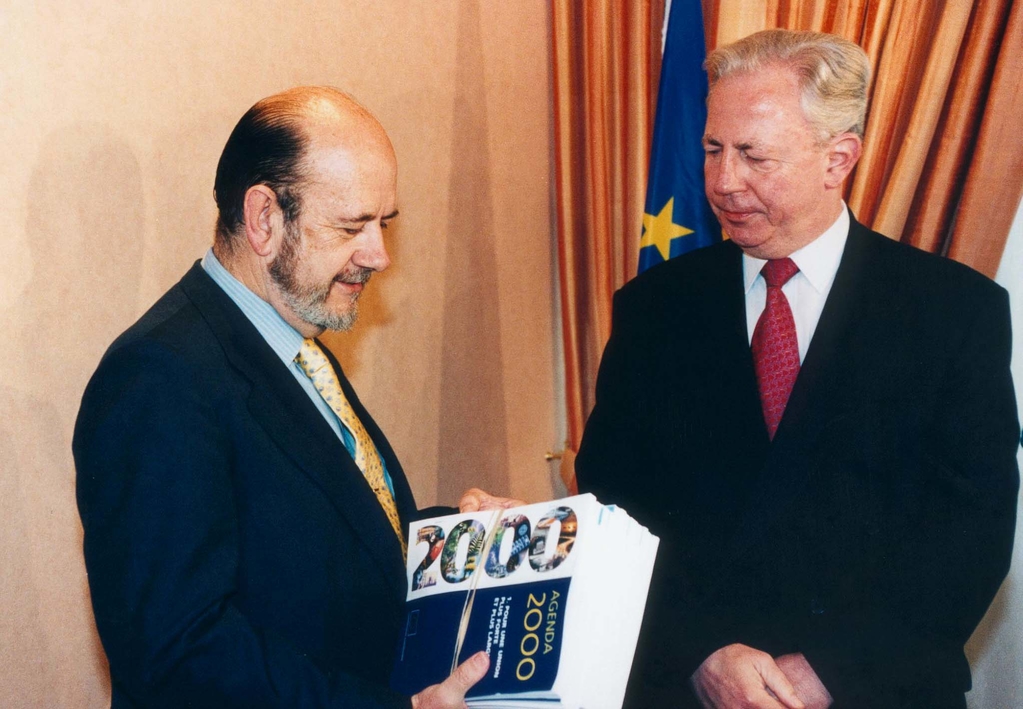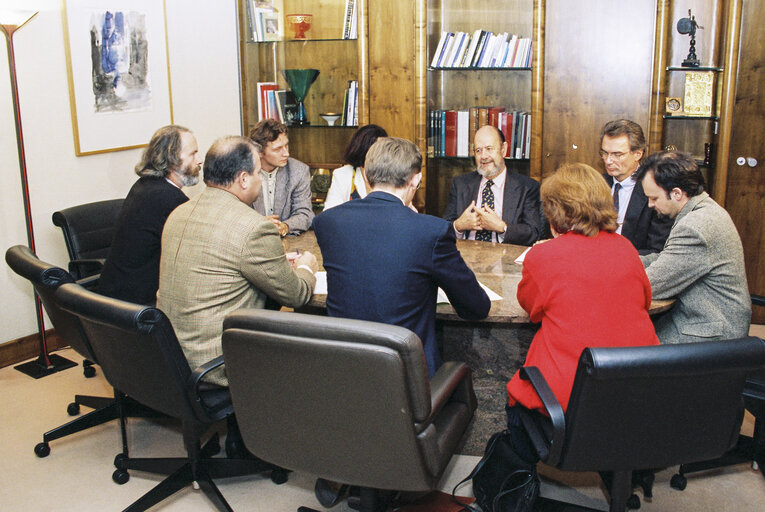Biography
José María Gil-Robles Gil-Delgado was born in Madrid on 17 June 1935, the son of José María Gil-Robles y Quiñones, a Spanish politician and Minister for War during the Second Republic (1935-1936), who went into exile in France and Portugal. He spent his childhood and adolescence in Estoril, Portugal. After returning to Spain in 1952, he studied law at Deusto University and Salamanca University.
In 1958, he was appointed Parliamentary Counsel in the Spanish Parliament (Letrado de las Cortes). He was Professor of Constitutional Law at Complutense University in Madrid from 1959 to 1964. At the same time he began practising as a lawyer, continuing to do so except during his term of office as President of the European Parliament.
He held a Jean Monnet Chair and was Director of the Centro de Excelencia de Estudios Europeos Jean Monnet "Antonio Truyol" (Complutense University). He also held honorary doctorates from the Moscow State Institute of International Relations in Russia (awarded in 1998) and from Sofia University in Bulgaria (awarded in 1999).
José María Gil-Robles Gil-Delgado passed away on 13 February 2023.
Political Posts
• 1957: Became Member of the Spanish Association for European Cooperation, linked to the European Movement
• 1962: Joined Democracia Social Cristiana
• 1972: Member of the Executive of Equipo Demócrata Cristiano del Estado Español (Christian Democratic Team of the Spanish State)
• 1977: Member of Democracia Cristiana Española (Christian Democracy Spain); held Europe-related offices
• 1989-2004: Member of the European Parliament
• 1990-2004: Member of the Presidency of the European People's Party and of the National Executive of the Spanish People's Party
• 1999-2005: President of the European Movement International
• 1993-1994: Chair of the European Parliament's Committee on Institutional Affairs
• 1994-1997: Vice-President of the European Parliament
• 1997-1999: President of the European Parliament
• 2002-2004: Chair of the Delegation to the EU-Bulgaria Joint parliamentary Committee
• 2006-2010: President of the European Parliament Former Members Association
What's in the Archives
The archives of José María Gil-Robles Gil-Delgado's Office (1997-1999) contain over 10,600 items arranged in more than 800 files relating to specific procedures dealt with during the President's term of office. These files are organised according to the various fields of activity of the President's Office, forming four groups of series (administrative and legal duties, political duties, divided between internal and external relations, and, lastly, citizens' mail), which are themselves sub-divided into 20 series.
Administrative and legal duties
PE4 P2 A00/ADJU
This group of series covers documents concerning relations with the General Secretariat of the European Parliament, i.e. all the directorates-general and, in addition, the Legal Service. Two further series relate, firstly, to financial resources (financial and budget management) and secondly, to property (policy and management).
Political duties: Internal relations
PE4 P2 B00/RINT
This group of series contains the series corresponding to relations with the European Parliament's various political bodies, such as the College of Quaestors, parliamentary committees and delegations, the political groups, MEPs and, lastly, his own Office.
Political duties: external relations
PE4 P2 C00/REXT
This group of series is made up of a first series relating to the President's activities as the Institution's external representative, mainly based on the 'visits and public relations' files. The following series contain documents concerning the President's relations with the other Community institutions and bodies. His role as representative also includes his relations with Member States and third countries in the form of correspondence and documents relating to official visits and relations with parliaments, governments and embassies. The final two series concern relations established with international organisations and forums.
Citizens' mail
PE4 P2 C95/CITO
Finally, the last organic series relates to filed chronologically according to incoming and outgoing.
 EP President José María Gil-Robles Gil-Delgado at the European Parliament in Brussels © European Communities 1997 – European Parliament
"It was Kant who most perceptively said that 'the struggle for Parliament is the struggle for freedom'. Yesterday, today and forever, it is, has been and will be also the struggle for equality and solidarity, the struggle for a future of peace."
EP President José María Gil-Robles Gil-Delgado at the European Parliament in Brussels © European Communities 1997 – European Parliament
"It was Kant who most perceptively said that 'the struggle for Parliament is the struggle for freedom'. Yesterday, today and forever, it is, has been and will be also the struggle for equality and solidarity, the struggle for a future of peace."
 European Parliament President José María Gil-Robles Gil-Delgado at the signing of the Treaty of Amsterdam on October 2, 1997 © European Communities
European Parliament President José María Gil-Robles Gil-Delgado at the signing of the Treaty of Amsterdam on October 2, 1997 © European Communities
 EC President Jacques Santer (R) presents the Agenda 2000 to EP President José María Gil-Robles Gil-Delgado (L). © European Union 1997 – European Parliament
EC President Jacques Santer (R) presents the Agenda 2000 to EP President José María Gil-Robles Gil-Delgado (L). © European Union 1997 – European Parliament
 EP President José María Gil-Robles Gil-Delgado meets with First Deputy Speaker of the Duma and Co-chair of EU-Russia Parliamentary Cooperation Committee Vladimir Ryzkhov. © European Communities 1998 – European Parliament
EP President José María Gil-Robles Gil-Delgado meets with First Deputy Speaker of the Duma and Co-chair of EU-Russia Parliamentary Cooperation Committee Vladimir Ryzkhov. © European Communities 1998 – European Parliament
